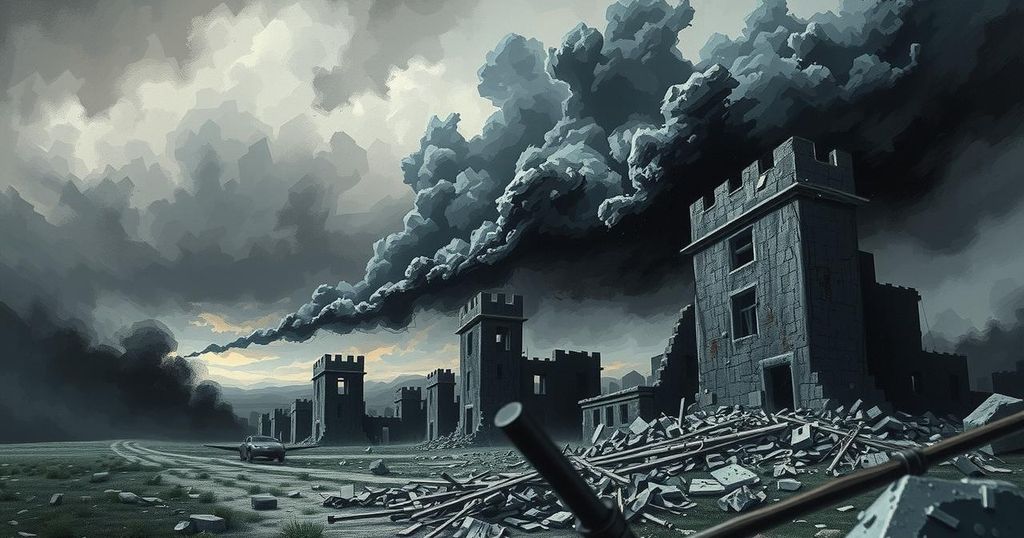The U.S. and Houthis have intensified military conflict, with Trump declaring that the Houthis “will be completely annihilated.” Recent U.S. airstrikes in Yemen target Houthi leaders, while Houthi officials assert they will respond to U.S. aggression independently from Iran. The situation remains dire amidst a humanitarian crisis in Yemen.
The recent escalation in hostilities between the Houthis and the United States has intensified, with the Houthis classified as a terrorist organization by the U.S., purportedly receiving support from Iran. President Trump has reiterated his demand for Iran to cease its support of the Houthis, stating they “will be completely annihilated.” A top Houthi official, Jamal Amer, discussed the ongoing conflict in an interview, indicating the organization’s resolve to continue their operations despite U.S. airstrikes.
The U.S. Navy has resumed military action in the Red Sea, conducting numerous airstrikes targeting Houthi positions, aiming to dismantle their leadership structure. Amer acknowledged the presence of civilian casualties as a result of the strikes, while the U.S. administration has denied any instances of collateral damage, attributing the responsibility to the Houthis for their aggressive actions.
The Houthis recently intensified their operations, seizing commercial vessels and reportedly targeting Israeli-linked ships in a show of solidarity with Gaza. They have warned that their aggressive stance will persist until humanitarian aid to Gaza is allowed unimpeded, highlighted by President Trump’s orders for a sustained military response. Secretary of Defense Pete Hegseth indicated that these strikes will continue as long as the Houthis maintain their maritime aggression.
As tensions escalate, Amer stated that the Houthis would retaliate against U.S. naval assets while asserting their autonomy from Iranian influence. Moreover, he emphasized that the Houthis operate independently, dismissing any notion of their actions being directed by Tehran. He portrayed their military decisions as purely Yemeni and not reliant on external allies.
The Houthis govern a significant portion of Yemen, yet their leadership has faced criticism for prioritizing warfare over humanitarian needs. Despite their claims of seeking peace, their recent actions, including the detainment of U.N. workers and the seizure of aid meant for civilians, have raised humanitarian concerns. Amer defended these actions as necessary responses to external threats, framing them within the context of self-defense and national sovereignty.
In conclusion, the United States and the Houthis remain locked in conflict as the situation in Yemen continues to deteriorate. The U.S. aims to disrupt and dismantle the Houthi operations linked to Iranian support, while the Houthis claim that their strategies are independent and focused on their sovereignty. The humanitarian crisis in Yemen remains a critical concern, exacerbated by the ongoing military conflict and the challenges posed to aid distribution.
In summary, the conflict between the Houthis and the United States highlights the complexities of international relations in the region, marked by U.S. military actions and Houthi defiance. The Houthis, while asserting their independence from Iranian command, continue to engage in aggressive military tactics, thus perpetuating the humanitarian crisis in Yemen. The outcome of the U.S. airstrike campaign remains to be seen as both parties demonstrate unwillingness to de-escalate the current hostilities.
Original Source: www.pbs.org




